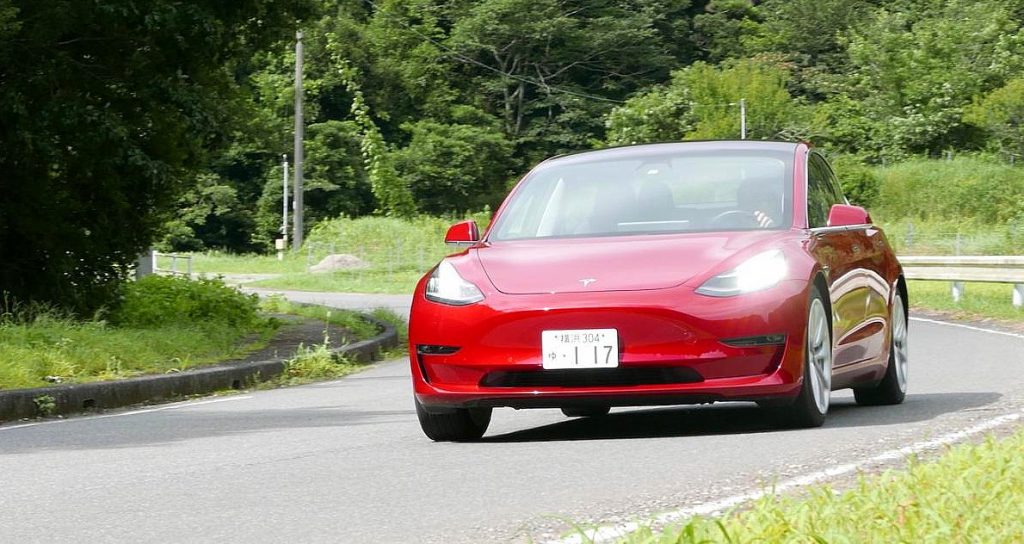Tesla has been one of the automakers that have actually managed to thrive this year despite the pandemic. And as the electric car maker continues its rise, it is becoming pretty clear that legacy automakers who refuse to ride the transition to renewable transport risk getting left behind. This is the case even if the automaker in question is Toyota, the previous Number 1 carmaker by market cap.
Tesla only sells a fraction of the vehicles sold by Toyota every year, but the electric car maker has a market cap that is around $370 billion now. That’s roughly equivalent to the annual gross domestic product of Hong Kong, and it’s nowhere near reaching its full potential yet. TSLA bulls like Cathie Wood of ARK Invest note that Tesla’s Autopilot tech and data are pretty much ignored for now, and billionaire investor Ron Baron argues that Tesla Energy has as much potential as the company’s EV business.
Tesla is showing rapid growth across the globe, and this is no more evident than in China, a country that is currently home to the company’s first offshore Gigafactory in Shanghai. Thanks to this, as well as grassroots efforts that make Tesla's widely supported by the Chinese government, the company is poised to reap benefits in the country. In Japan, however, things could not be more different. Tesla may have close ties with Japan thanks to its long-time battery partnership with Panasonic and its previous deal with Toyota, but today, the far east country’s mainstream vehicle market remains out of reach for the Silicon Valley-based maker.
Despite this, William Pesek, an award-winning Tokyo-based journalist and author of “Japanization: What the World Can Learn from Japan’s Lost Decades,” argues that Tesla’s rise across the globe further highlights how Japan’s auto market is still stuck in first gear. In an article on the Nikkei Asian Review, Pesek noted that what Japan is so far missing in the Tesla picture is the fact that Elon Musk does not sell cars. While Japan is still busy focusing on hardware, Tesla is already exploring software, allowing Elon Musk to pretty much sell than iPhone on wheels. This ensures that Tesla is capable of embracing the next generation of motoring.
“What Toyota long missed about Musk is that he is not selling cars. He is selling an iPhone with wheels. The vehicle itself is merely a medium to market the software undergirding the iTunes-like community that he is building. The data Tesla collects from users, their environs, interests, tendencies, travel habits and the range of behaviours will arguably be more valuable than the engines and high-performance batteries powering them. This enables Tesla to hone the customer experience, while discerning where the market will veer next,” Pesek wrote.
Perhaps what Japan really needs right now is to embrace the fact that sometimes, disruption is a necessary evil during times of transition. Strictly speaking, legacy automakers like Toyota should have no problem catching up to Tesla by, say 2025, due to their massive talent pool and resources. This does not seem to be case, however, as carmakers like Toyota have a tendency to focus more on legacy than innovation. Toyota has refined its car making processes through decades of refinements, and its global supply chain helps create millions of jobs. This, while noble in a way, is a weight that a company like Tesla simply does not have.
Tesla moves fast, fails fast, and innovates fast. The company’s vertical integration allows it to implement changes and improvements as soon as they are ready. Granted, automakers like Toyota could not adopt such changes overnight, but efforts must be done to increase innovation. This is something that Japanese companies are capable of doing, as seen in the continued efforts of Panasonic’s and its longtime battery partnership with Tesla in Gigafactory Nevada. Perhaps companies like Toyota, Nissan, Honda, and the other premier Japanese carmakers could do the same.
For now, it appears that Elon Musk has already won. So great is the gap in the electric vehicle market that newcomers like Lucid Motors and Rivian Automotive seem to have a better chance at catching Tesla than legacy carmakers. But amidst this threat of being permanently left behind, veterans in the auto market could also see this time as an opportunity to change and raise their electric vehicle game. If there’s anything that Tesla’s rise shows, after all, it is that renewable solutions are the new standard, and they are here to stay.
- By Simon Alvarez

No comments:
Post a Comment